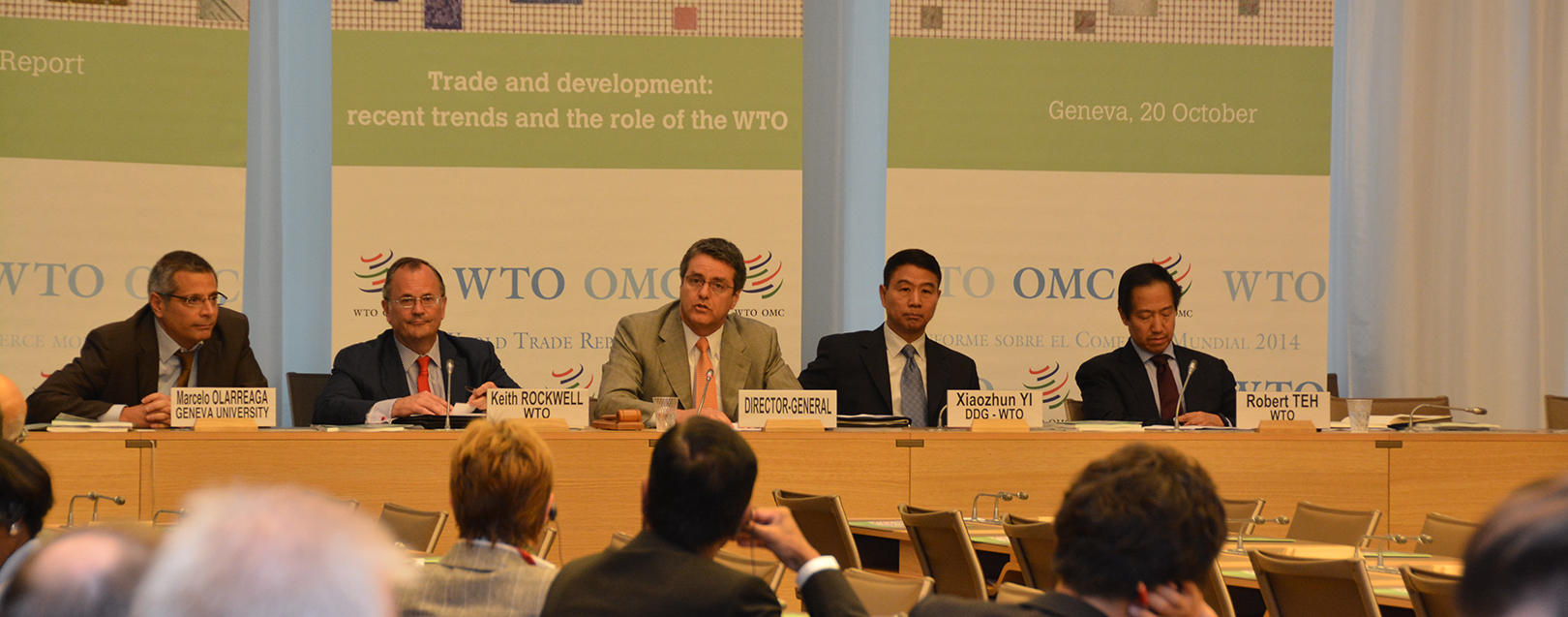
WTO Director General Roberto Azevedo addressing the Trade Negotiations Committee on July 31, 2014. (Pic. source - WTO)
Subsidies can’t be based on prices that prevailed two decades back i.e. 1986-88, as proposed by WTO. They certainly need to take in account a more current base year and incorporate factors such as inflation and currency movements
Manish K. Pandey | @TheDollarBiz
Many critics, both in India and abroad, have lambasted, and literally ripped apart the Indian government since the country refused to ratify the Trade Facilitation Agreement (TFA) at the General Council Meeting of World Trade Organisation (WTO) held at Geneva in July this year. Most of them had expected the pact to formalise, and which according to them would have added about $1 trillion to the world GDP apart from creating over 20 million jobs. So, does that mean India’s tough stand on the food security issue was totally unethical? And by doing so has India jeopardised a trade deal that is supposed to streamline logistics and customs procedures and boost global trade? Mostly true, but then what about the other side of the coin?
The 100-day-old Modi government blocked the deal citing inadequate progress on proposals for exempting support for subsistence farmers from subsidy limits. Was its ask too much to entertain? I don’t really understand why India is at fault if it wants WTO to amend the norms for calculating agri-subsidies. Is it irrational to procure foodgrains from farmers at minimum support price and sell that to the poor at cheaper rates in a country of 1.2 billion whose 25% population lives below the poverty line and over 70% (nearly 850 million) of its inhabitants still rely on a subsidised food distribution programme (the world’s largest) for feeding themselves?
In fact, it’s not just about India. The 160-nation bloc consists of many countries which are poorer than India. What about countries like Sierra Leone, Chad and Benin? Still today more than 1.3 billion people across the globe live in extreme poverty. Doesn’t that make India’s concern on food security a global concern? So why such a ruckus if India is asking WTO to revise the subsidy cap and change the base year, which is more than two decades old.
Subsidies can’t be based on prices that prevailed two decades back i.e. 1986-88, as proposed by WTO. They certainly need to take in account a more current base year and incorporate various other factors such as inflation and currency movements, factors that are still missing from the current draft. This certainly makes a case for change in 10% subsidy ceiling (of the total value of foodgrain production) which is based on a price which is irrelevant in today’s world. If the current norms prevail, developed countries like US and UK would enjoy bigger subsidies than underdeveloped or developing countries like Sierra Leone and India respectively, countries which actually need them more. So, my question for the critics is: does it really make sense to create jobs for some other country, while your citizens continue to die of hunger?
In fact, I totally agree with Kanayo Nwanze, President of International Fund for Agriculture Development (IFAD), a UN body for development of agriculture. “Creating jobs for some other country, while people are still hungry, doesn’t make sense… If I was in the position of feeding my own family or creating jobs for someone else, what would I do? What would you do?” he has been quoted in news sources.
Talks are due to resume in Geneva next month. But the Modi government remains firm on the issue. It has made clear that India will endorse the deal only if WTO agrees to its demand for concessions on food subsidies. And that’s the right thing to do, even if it’s the only country to question the logic. Well, sometimes you need to walk the path alone as they rightly say: “No one saves us but ourselves. No one can and no one may. We ourselves must walk the path.”!
Get the latest resources, news and more...
By clicking "sign up" you agree to receive emails from The Dollar Business and accept our web terms of use and privacy and cookie policy.
Copyright @2026 The Dollar Business. All rights reserved.
Your Cookie Controls: This site uses cookies to improve user experience, and may offer tailored advertising and enable social media sharing. Wherever needed by applicable law, we will obtain your consent before we place any cookies on your device that are not strictly necessary for the functioning of our website. By clicking "Accept All Cookies", you agree to our use of cookies and acknowledge that you have read this website's updated Terms & Conditions, Disclaimer, Privacy and other policies, and agree to all of them.

